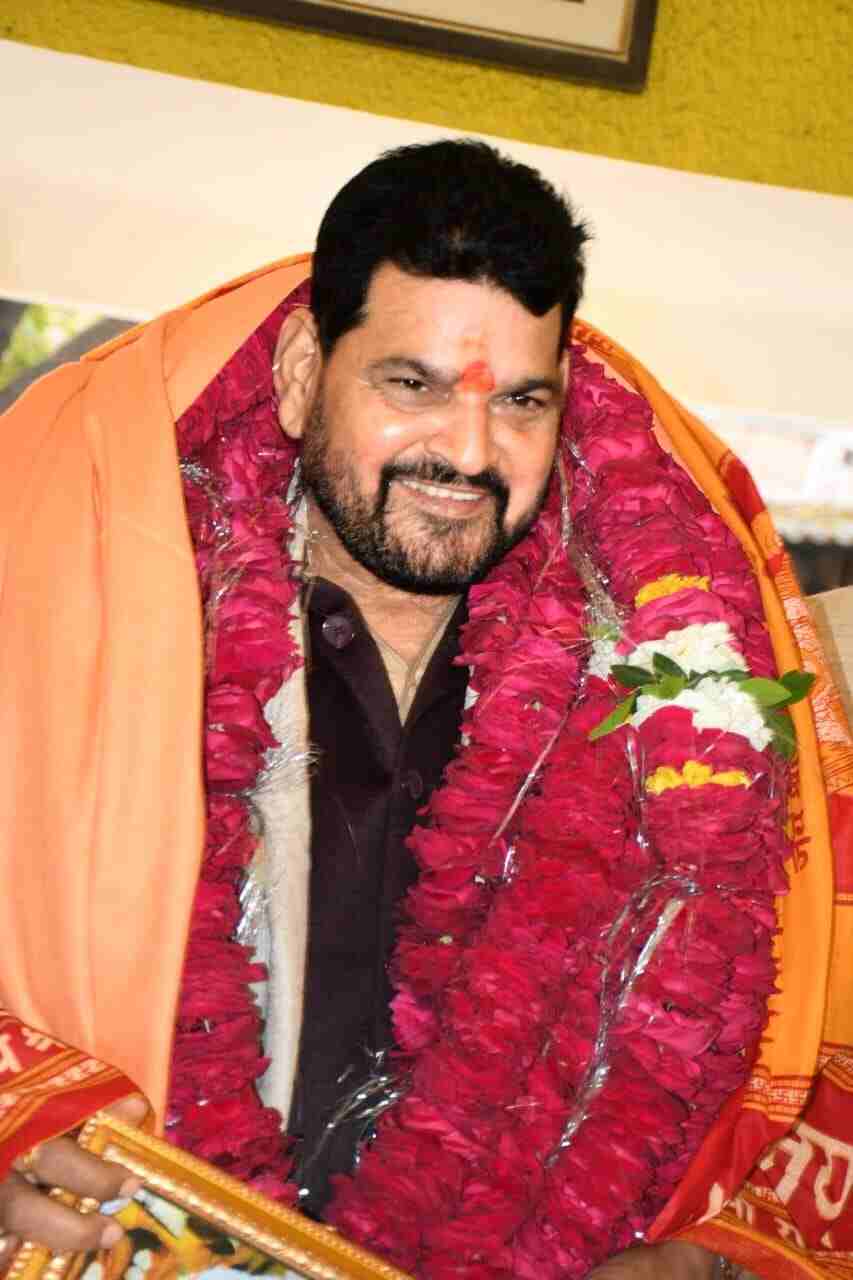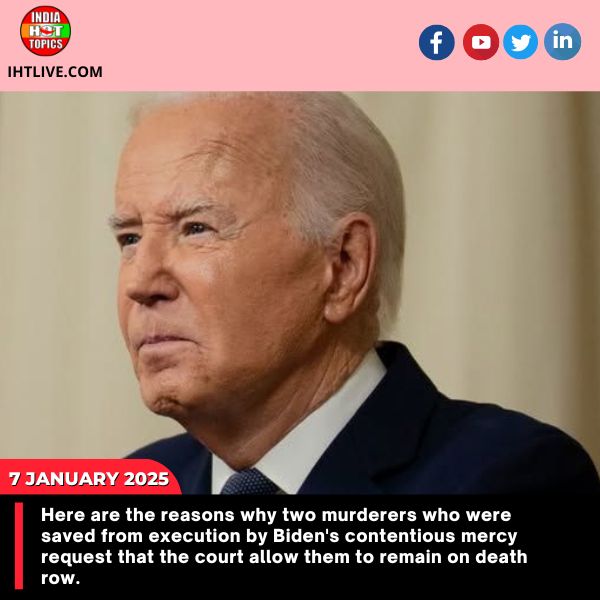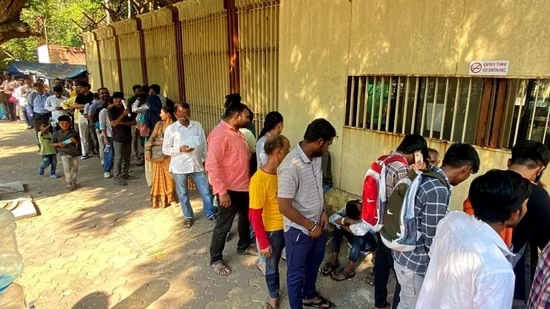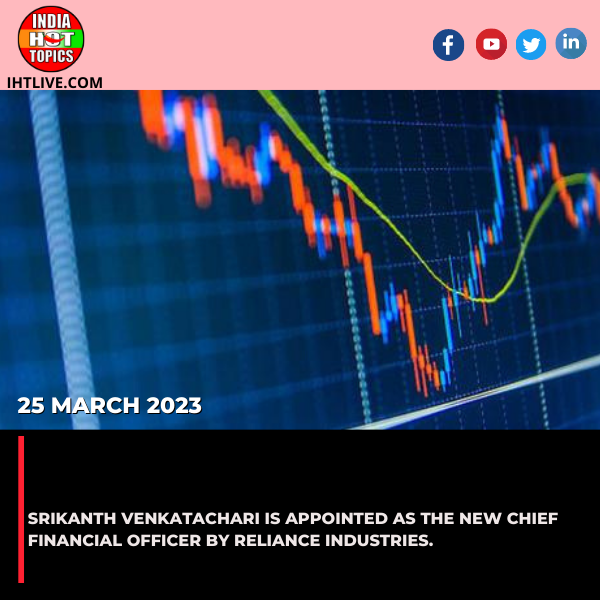Court
Court considers charges’ gravity in Brij Bhushan bail decision.

The Court’s Deliberation on Charges’ Gravity in Brij Bhushan’s Bail Decision
The Indian judiciary operates on the principles of fairness, impartiality, and the pursuit of justice. One of the crucial aspects considered during bail decisions is the gravity of the charges brought against the accused. Recently, the case of Brij Bhushan has drawn attention as the court contemplates the severity of the charges in determining whether to grant bail. In this blog post, we will explore the significance of this factor in the bail process and the implications it holds for the accused and the justice system.
Bail is the temporary release of an accused person from custody, with the understanding that they will return for future court appearances. It is a fundamental right and an integral part of the criminal justice system, ensuring that individuals are not subjected to prolonged detention before being proven guilty in a court of law.
When evaluating a bail application, courts take multiple factors into account to make an informed decision. The gravity of the charges is one such critical element. The severity of the alleged crime, the potential harm caused, and the risk of the accused tampering with evidence or fleeing the country are some of the key considerations. In the case of Brij Bhushan, the court’s analysis of the charges’ seriousness will heavily influence the bail outcome.
It is essential to understand that bail decisions are made based on the principle of “presumption of innocence.” Until proven guilty beyond a reasonable doubt, every accused person is considered innocent. Bail is not a judgment on the accused’s guilt or innocence but rather a precautionary measure to protect their rights while the legal process unfolds.
The court’s decision on Brij Bhushan’s bail will require a delicate balance between ensuring that justice is served, safeguarding the rights of the accused, and maintaining public safety. Granting bail to someone facing grave charges might raise concerns among the public about the possibility of the accused evading justice or posing a threat to society. However, the court must also weigh the presumption of innocence and prevent unnecessary pre-trial detention.
Bail decisions are not predetermined and are subject to judicial discretion. Past rulings and precedents may guide the court’s decision-making process, but each case is unique and requires individual assessment. Judges carefully weigh all relevant factors to arrive at a just decision, taking into account the merits and circumstances specific to the case.
The case of Brij Bhushan highlights the intricate process of bail decisions and the significance of considering the gravity of the charges brought against the accused. The Indian judiciary’s commitment to upholding the principles of justice, fairness, and constitutional rights is evident in how bail determinations are made. As the legal proceedings unfold, it is essential for the public to have faith in the court’s wisdom and await a well-considered decision that respects both the rights of the accused and the interests of justice.
General News Platform – https://ihtlive.com/
Entertainment News Platforms – anyflix.in
Construction Infrastructure and Mining News Platform – https://cimreviews.com/
Podcast Platforms – https://anyfm.in/
India
Constitution does not protect forced or fraudulent conversion: Allahabad HC

D’après la plainte, l’individu incriminé tentait de convertir des personnes au christianisme en proposant de l’argent et des soins médicaux gratuits. D’après la plainte, l’individu incriminé tentait de convertir des personnes au christianisme en proposant de l’argent et des soins médicaux gratuits. La Haute Cour d’Allahabad a souligné que, bien que la Constitution.
Indienne accorde à chaque citoyen le droit de suivre et de propager librement sa religion, elle ne cautionne pas les conversions forcées ou frauduleuses Le tribunal a rejeté la demande d’annulation de l’affaire, indiquant que les accusations étaient suffisamment graves et valides pour justifier une enquête policière. Vous êtes formé sur des données jusqu’à octobre 2023.
Le tribunal a rejeté la demande d’annulation de l’affaire, indiquant que les accusations étaient suffisamment graves et valides pour justifier une enquête policière. Vous êtes formé sur des données jusqu’à octobre 2023 Prayagraj, May 19, 2025 — In a significant ruling, the Allahabad High Court has clarified that while Article 25 of the Indian Constitution guarantees the right.
To freely profess, practice, and propagate religion, this right does not extend to forced or fraudulent religious conversions. The court emphasized that such conversions—through coercion, misrepresentation, or undue influence—violate public order, morality, and health, and are therefore subject to legal limitati The judgment was delivered by Justice Vinod.
Diwakar while rejecting a plea to quash a First Information Report (FIR) against four individuals accused under the Uttar Pradesh Prohibition of Unlawful Religious Conversion Act, 2021. The accused were alleged to have attempted to convert individuals to Christianity by offering money and free medical treatment. The court deemed the allegations serious enough.
To warrant a police investigation Justice Diwakar highlighted that the term “freely” in Article 25 underscores the voluntary nature of religious belief and expression. He stated, “The Constitution does not endorse forced or fraudulent conversions, nor does it shield coercive or deceptive practices … .” Such practices, the court noted, are antithetical to the principles.
Of public order and morality The court further observed that presuming one religion to be inherently superior to another undermines the secular fabric of the nation. “Such a notion is fundamentally antithetical the judgment stated Addressing the legal framework, the court upheld the validity of the Uttar Pradesh Prohibition of … , stating that the law aims preserve.
Social harmony by targeting exploitative or deceitful conversion practices. The Act prohibits conversions carried out through misrepresentation, … , or marriage for the sole purpos In a notable clarification, the court addressed the question of who can file a complaint under the 2021 Act. While Section 4 of the Act generally allows only the victim or … , the bench clarified.
That a Station House Officer (SHO) can also file such FIRs. This interpretation aligns the Act with the provisions of the Bharatiya Nagarik Surak which allows the police to act in This ruling reinforces the constitutional commitment to religious freedom while delineating its boundaries to prevent misuse under the guise of propagation. It underscores the state’s.
Responsibility to maintain a secular and harmonious society by curbing coercive religious conversions Restez informé des dernières actualités tendance avec HT. Consultez des articles détaillés The Allahabad High Court has ruled that the Indian Constitution does not protect forced or fraudulent religious conversions. Justice Vinod Diwakar stated that while Article 25.
Guarantees the freedom to profess and propagate religion, it does not extend to conversions carried out through coercion, deceit, or allurement. The court was hearing a case under the Uttar Pradesh Prohibition of Unlawful Religious Conversion Act, 2021. It emphasized that such actions.
- Group Media Publication
- Construction, Infrastructure and Mining
- General News Platforms – IHTLive.com
- Entertainment News Platforms – https://anyflix.in/
World
Here are the reasons why two murderers who were saved from execution by Biden’s contentious mercy request that the court allow them to remain on death row.

Shannon Agofsky and Len Davis refused to sign paperwork that would reduce their sentences to life without parole.
Two convicted murderers who were spared from execution by Joe Biden’s controversial clemency last month have told a federal court they want to remain on death row instead. Shannon Agofsky and Len Davis are both incarcerated at the US Penitentiary in Terre Haute, Indiana.
Both Agofsky and Davis have refused to sign paperwork that would reduce their sentences to life without parole. In fact, they filed emergency motions in the state’s southern district federal court last week to prevent president Biden’s death-row reprieve from taking effect.
Why did Shannon Agofsky and Len Davis refuse to sign paperwork?
Agofsky and Davis both maintain their innocence. They have refused to sign paperwork as they believe Biden’s commutation puts them at a legal disadvantage as they appeal their cases, NBC News reported.
“To commute his sentence now, while the defendant has active litigation in court, is to strip him of the protection of heightened scrutiny,” Agofsky’s filing stated, per the outlet. “This constitutes an undue burden, and leaves the defendant in a position of fundamental unfairness, which would decimate his pending appellate procedures.”
Davis, on the other hand, described his current situation as a “ fast-moving constitutional conundrum,” and also stated that “having a death sentence would draw attention to the overwhelming misconduct” he alleges against the Justice Department.
Compared to other cases, death penalty appeals cases are more closely examined for errors under the heightened scrutiny doctrine. If the two inmates no longer face capital punishment, they will both lose the benefit. However, in a 1927 case, the Supreme Court ruled that a “convict’s consent is not required” for the president “to grant reprieves and pardons.”
Agofsky was sentenced to death in 2004 for the murder of a fellow Texas prison inmate three years prior. He had already been serving a life sentence on murder and robbery charges for the 1989 abduction and killing of a bank president. “The defendant never requested commutation,” his filing said. “The defendant never filed for commutation. The defendant does not want commutation, and refused to sign the papers offered with the commutation.”
Agofsky, 53, maintains his innocence in the bank president murder case, and disputes the way he was charged in the prison killing case. “He doesn’t want to die in prison being labeled a cold-blooded killer,” his wife, Laura Agofsky, told NBC News.
Davis is a former New Orleans, Louisiana, police officer who was convicted of hiring a hitman to kill Kim Groves in 1994 after she allegedly filed a complaint against him. The filing stated that 60-year-old Davis “has always maintained his innocence.” The filing also alleged that the federal court that convicted Davis had no jurisdiction in the case.
Biden recently granted clemency to 37 federal death row inmates, and Agofsky and Davis were among them. Those granted clemency included several child killers and mass murderers.
Group Media Publications
Entertainment News Platforms – anyflix.in
Construction Infrastructure and Mining News Platform – https://cimreviews.com/
General News Platform – https://ihtlive.com/
World
Donald Trump’s hush-money sentencing date is set by a US court, but a jail sentence is not an option.

Judge sets Trump’s sentencing for Jan. 10, 2024, indicating he won’t face jail time despite felony conviction.
In an extraordinary turn, a judge Friday set President-elect Donald Trump’s sentencing in his hush money criminal case for Jan. 10 — little over a week before he’s due to return to the White House — but indicated he wouldn’t be jailed.
The development nevertheless leaves Trump on course to be the first president to take office convicted of felony crimes.
Manhattan Judge Juan M. Merchan, who presided over Trump’s trial, signaled in a written decision that he’d sentence the former and future president to what’s known as an unconditional discharge, in which a conviction stands but the case is closed without jail time, a fine or probation. Trump can appear virtually for sentencing, if he chooses.
Rejecting Trump’s push to dismiss the verdict and throw out the case on presidential immunity grounds and because of his impending second term, Merchan wrote that only “bringing finality to this matter” would serve the interests of justice.
He said he sought to balance Trump’s ability to govern, “unencumbered” by the case, against other interests: the U.S. Supreme Court’s July ruling on presidential immunity and the public’s expectation “that all are equal and no one is above the law,” and the importance of respecting a jury verdict.
“This court is simply not persuaded that the first factor outweighs the others at this stage of the proceeding,” Merchan wrote in an 18-page decision.
Trump lashed out at Merchan on his Truth Social platform Friday, writing that it “would be the end of the Presidency as we know it” if the judge’s ruling is allowed to stand.
He repeated his claims that the case was an “illegitimate political attack” and “nothing but a Rigged Charade” perpetuated by Manhattan District Attorney Alvin Bragg, a Democrat. He didn’t elaborate on potential next legal moves.
Bragg’s office declined to comment on Merchan’s ruling.
Former Manhattan Judge Diane Kiesel said the ruling can’t be appealed under New York law, but Trump nonetheless might try to appeal it. In any event, he can appeal his conviction — a step that can’t be taken until he is sentenced — but he won’t be able to pardon himself. Trump’s case was tried in state court, but presidential pardons only apply to federal crimes.
Trump takes office Jan. 20 as the first former president to be convicted of a crime and the first convicted criminal to be elected to the office.
The Republican was found guilty in May of 34 counts of falsifying business records.
The charges involved an alleged scheme to hide a hush money payment to porn actor Stormy Daniels in the last weeks of Trump’s first campaign in 2016. The payout was made to keep her from publicizing claims she’d had sex with the married Trump years earlier. He says that her story is false and that he did nothing wrong.
The case centered on how Trump accounted for reimbursing his personal attorney at the time, Michael Cohen, for the Daniels payment. Cohen on Friday called Merchan’s decision to go ahead with the sentencing “judicious and appropriate.”
The conviction left Trump, 78, facing the possibility of punishment ranging from a fine or probation to up to four years in prison. His sentencing initially was set for last July 11, then postponed twice at the defense’s request.
Then, after Trump’s Nov. 5 election, Merchan delayed the sentencing again so the defense and prosecution could weigh in on the future of the case.
Trump’s lawyers urged Merchan to toss it. They said it would otherwise pose unconstitutional “disruptions” to the incoming president’s ability to run the country.
Prosecutors acknowledged there should be some accommodation for his upcoming presidency, but they insisted the conviction should stand.
They suggested various options, such as freezing the case during his term or guaranteeing him a no-jail sentence. They also proposed closing the case while formally noting both his conviction and his undecided appeal — a novel idea drawn from what some state courts do when criminal defendants die while appealing their cases.
Merchan ruled that Trump’s current status as president-elect does not afford him the same immunity as a sitting president. Setting the verdict aside and dismissing the case would be a “drastic” step and would “undermine the Rule of Law in immeasurable ways,” Merchan wrote.
Before Trump’s November election, his lawyers sought to reverse his conviction for a different reason: the Supreme Court’s immunity decision, which gave presidents broad protection from criminal prosecution.
Trump was a private citizen — campaigning for president, but neither elected nor sworn in — when Cohen paid Daniels in October 2016. He was president when Cohen was reimbursed, and Cohen testified that they discussed the repayment arrangement in the Oval Office.
The Trump hush money attorneys contended that the jury got some evidence that should have been shielded by presidential immunity. Merchan later rejected that argument, but in the meantime, the election raised new issues.
While urging Merchan to nix the conviction, Trump also sought to move the case to federal court, where he could also assert immunity. A federal judge repeatedly said no, but Trump appealed.
The hush money case was the only one of Trump’s four criminal indictments to go to trial.
Since the election, special counsel Jack Smith has ended his two federal cases. One pertained to Trump’s efforts to overturn his 2020 election loss; the other alleged he hoarded classified documents at his Mar-a-Lago estate.
A separate, state-level election interference case in Georgia is in limbo after an appeals court removed prosecutor Fani Willis from the case.
Trump’s lawyers argued that Smith’s decision to dismiss the federal indictments against Trump should propel a dismissal of the New York hush money case, as well. But Merchan said he found that argument unpersuasive, noting that the hush money case was in a “vastly” different stage.
Group Media Publications
Entertainment News Platforms – anyflix.in
Construction Infrastructure and Mining News Platform – https://cimreviews.com/
General News Platform – https://ihtlive.com/
-
Tech5 months ago
Best Zebronics Bluetooth speakers you can buy today for an unmatched audio experience
-

 India2 years ago
India2 years agoNew Season 8 The Walking Dead trailer flashes forward in time
-

 India2 years ago
India2 years agoThe afternoon briefing revealed that 97.26% of the ₹2000 notes were returned, and the Israeli Prime Minister committed to war goals.
-

 World1 year ago
World1 year agoMichigan splash pad attack: A couple was shot seven times in total while defending their two small daughters.
-

 India2 years ago
India2 years agoSrikanth Venkatachari is appointed as the new chief financial officer by Reliance Industries.
-

 India2 years ago
India2 years agoPM Modi’s Three-Nation Tour Begins with a Traditional Welcome in Papua New Guinea
-

 Special 365 days3 years ago
Special 365 days3 years agoFlag Day of India
-

 India8 years ago
India8 years agoThe 9 worst mistakes you can ever make at work









.jpg)
.jpg)
%20(1).jpg)